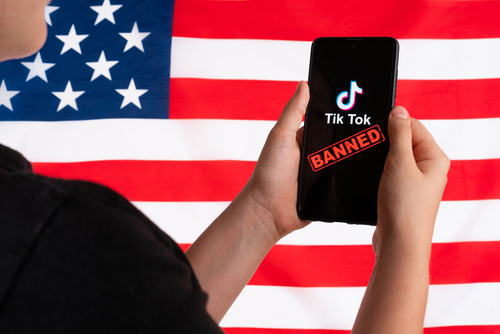Albania’s move to ban TikTok for a year raises questions about social media’s impact on youth violence.
A Drastic Step in Albania
Albania’s government, led by Prime Minister Edi Rama, has announced a one-year prohibition on TikTok, which will be implemented starting in 2025. This decision was made in response to a tragic incident involving a fatal stabbing of a teenager, which allegedly began over a disagreement on TikTok. The government argues that the social media platform has contributed to escalating violence and bullying among children in the country.
Albania 🇦🇱 bans Tik Tok starting 1 January 2025. It is not that difficult Europe. https://t.co/iPm5IpKo41
— RomanaVlahutin (@RVlahutin) December 21, 2024
This ban is part of a wider strategy targeting broader societal issues, including enhancing educational initiatives and implementing parental engagement plans to mitigate the negative impact perceived among youth. Albanian children reportedly form the largest group of TikTok users in the country, intensifying parental concerns about increased instances of weaponry among students, allegedly influenced by content seen on the platform.
Albania to ban video hosting platform TikTok for one year, blaming it for inciting youth violence #EuropeNews https://t.co/ngQqYDbMME pic.twitter.com/jZ50fDsstG
— euronews (@euronews) December 21, 2024
A Broader Context
Prime Minister Rama’s decision aligns with a global trend where nations are reconsidering the ramifications of social media on their youth. In contrast, TikTok in China promotes educational and positive content. However, similar accountability is difficult to enforce in Albania due to limited influence on TikTok’s operations. Prime Minister Edi Rama stated that TikTok “would be fully closed for all. … There will be no TikTok in the Republic of Albania.”
Meanwhile, TikTok’s operations have raised global concerns, with accusations of espionage in the U.S. and potential interference in European electoral processes. Other countries, including India, Iran, and the United States, have also expressed apprehension regarding TikTok’s security and content issues.
Future Implications and Reactions
Albania’s government will monitor the reactions to this shutdown and assess the impacts before determining TikTok’s future presence in the country. The ban has stirred a national debate over social media’s influence, drawing criticism from opposition circles. Ina Zhupa, an opposition lawmaker, described the decision as a “grave act against freedom of speech and democracy.”
In conclusion, Albania’s TikTok ban raises critical questions about the balance between safeguarding youth and maintaining freedom of expression. The international community continues to watch as Albania confronts these challenges within its borders, potentially influencing similar actions worldwide.
Sources:
https://www.bbc.com/news/articles/c93gxzergk2o

